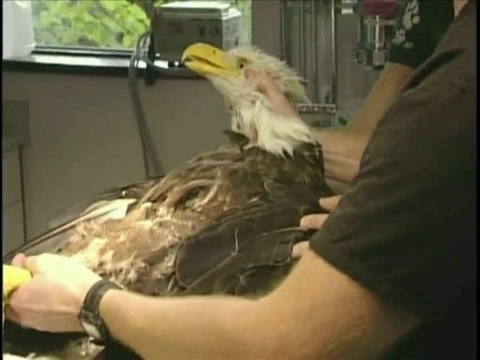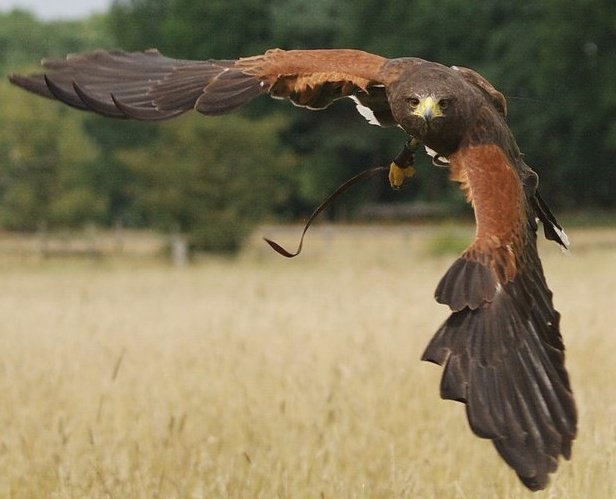Chapter Eight
On the wing
I remember the days the days on the wing
I remember that valley with the glistening brook in the spring
I remember swooping and soaring with skill
And landing on my rock face was always a thrill
I remember waiting for those fish to leap
And wondering if they ever sleep
I remember counting two then four
As hunger begged me to stall my soar
With wings tucked back and outstretched claw
I’d grab the next that I saw
I remember that and much much more
I shall always remember all I saw
I remember those days, those days on the wing
And that beautiful valley in spring
I shall remember playing like a king
As I circled on the wing
Now I live in a cage for people to look a gaze
I have to eat strange rotting meat
That I never saw die on my claw
I am not allowed to fly
and I am not allowed to die
The days are long, the view is bad
And I am very very sad
I remember those days those days in spring
And I find myself beginning to sing
That one day soon the cage door will spring
And I will be back back on the win
The spinal unit attached to Stoke Mandeville Hospital was built with monies raised by Sir Jimmy Saville’s dedicated fund raising efforts and was opened in 1983. Before that the spinal unit was part of the old hospital and had been there since 1944.
I was falling into a kind of semi-hallucinatory exhausted sleep. The transatlantic trip had been very stressful for everyone involved. My brother sat quietly trying to relax in these new and unsettling surroundings. There was a noticeable absence of bright-faced, attentive American nurses and we were beginning to feel the attention deficit. Then, suddenly, the big, green door blasted open and a rotund balding HCA wearing a grubby frayed white two piece uniform which looked like a shrunken sausage skin, barged into the room. He gestured with his eyes and a sneer at the tray of puddings he was carrying. ‘What do you want, sponge and custard or fruit salad?’ he asked in a booming loud voice that offended as much as it challenged. ‘Shhh, he’s trying to sleep,’ my brother said. ‘Does he want pudding or not?’ he grunted impatiently.
Ian jumped up defensively and stood between me and the angry invader. ‘What are you angry about?’ I asked. ‘What are you talking about, I’m not angry!’
The experience which followed was little better. A doctor arrived to do carry out an initial examination of me. Unfortunately he did not speak English. He stroked my body with a small brush and pricked me with a blunt pin to establish my sensory level. Inaudible requests and instructions were given. Fortunately, I knew what to do and knew why it was required.
I had been given several much more comprehensive neuro assessments in Jackson.
He stood at the foot of my bed fiddling with something. I felt some discomfort on the right sole of my foot and I asked Ian what he was doing. Apparently, our doctor had stuck a needle into a vein under my foot and was helping himself to some of my blood. No asking, no explaining, not even an inaudible grunt and a wave of the needle.
Were a vet to exposes an animal to mounting stress, that animal is unlikely to make a good or speedy recovery, it may even die as a result of such stress. Unfortunately, at this point I learned that stress may not be a factor worthy of consideration in the NHS.
He listened to my heart with his stethoscope and then he listened to it again, He began to frown and looking up and around the room in concentration. I should have considered his incompetence so far and concluded that he had not even found a beat but instead I assumed he had found a hole in my left ventricle or a cardio vascular infection previously missed by my top gun US doctors. I felt my will to live ebb slowly away as he walked out with my blood in his pocket. My mind was a riot of panicky thoughts, maybe he was going to test me for donor compatibility for those organs of mine that will still work after I am declared dead? A few hours later a very nice lady arrived pushing a portable ECG machine. She plugged me in and soon announced that I had a perfectly normal trace. She asked me if I had been fit all my adult life and when I said I had, she rolled her eyes and said, ‘Well, a strong heart does sound as though it gives a double beat, but he should know that . . .’
It took two weeks to get accurate test results back. I did not have M.R.S.A and I could be released into the main ward. My bed, with me in it, was wheeled into a bed bay with six other patients.
Norman asked me in an excited tone if I was a paraplegic. Plonker. ‘I don’t think I’ll ever walk again,’ He moaned. ‘How incomplete are you?’ I asked. ‘I don’t know.’ ‘Can you move your toes?’ ‘No, nothing, it’s all dead.’ ‘What’s your injury level?’ I asked. ‘I don’t know, I’m afraid to ask the doctor in case he gets angry with me.’
‘How long have you been injured?’ I pursued. ‘Five weeks.’ ‘Still too early to tell,’ I said. ‘You need to ask your consultant what your injury level is and if there are any signs of incompleteness yet. He won’t get angry and he’ll tell you the truth, just ask him.’
Ward round was a weekly event. Monday mornings between 9 and 11 am where we were talked about in the third person. ‘Hello, and how are you Mr, em, How-art?’
‘How is he getting on nurse?’ ‘He’s up and about everyday. He’s getting better with his feeding strap. No medical issues at the moment. ‘When was your accident?’ He asked me. ‘June 7th,’ I replied looking at the ceiling tiles.‘Anything else, young man?’ What could I ask him? He did not know my name or when I was injured. He did not check my neurology chart or ask me about my current sensory or motor function situation. He did not ask about or look for improvements. The only useful thing he appeared to say was ‘Fibogell, tre’ee times a day’ referring to my constipated bowel.
And now it was Jacob’s turn.‘Jacob’s just arrived from France,’ the nurse said.
‘How long were you on St Francis ward?’ he asked Jacob who gave him a Father Doogle Maguire blank stare. ‘No, not St Francis ward, France the country.’ The nurse said relishing her one-upmanship. ‘Make sure he takes Fibogell, tri’ times a day.’
Carl wasted no time in focusing the consultants attention on his immediate problem.
‘Doctor, my problem is that I am in pain and I need stronger pain killers.’ ‘But, I’m in a lot of pain.’ Carl said desperately. ‘It’s most probably constipation, are you taking Fibogell tri’ times daily?’
If this consultant was an army field surgeon on the front line and was presented with a mine victim with sniper holes in his shoulders, he would snap into action immediately and start mixing Fibogell. ‘Doctor we need more morphine.’ ‘No, it’s probably constipation, Fibogell tri’ times a day.’
‘Doctor will I ever walk again?’ ‘No, you will never walk again. You must use a wheelchair from now on.’ And with that the consultant walked to the next bed. Although probably true that patient had now backed himself into a corner - there was nowhere to go but into depression, sadness and possibly angry rejection of the chair that could be a part of him for ever. In short, all negative responses to a negative stimulus.
If there is one thing that is certain, it is that you can never say never and always be right. It would have been more accurate, positive and therefore constructive to have said, ''It is unlikely you will walk in the foreseeable future, however, significant recoveries are occasionally made. Work hard on what works and see what happens but, the odds are stacked against you. Scientific research is being carried out on both electronic and biological solutions to paralysis and in the near future new therapies may become available. Until then you must depend on a wheelchair - try to become as expert as you can while you are here.'' By so stringently avoiding the possibility of raising false hope, all hope had effectively been eliminated.

